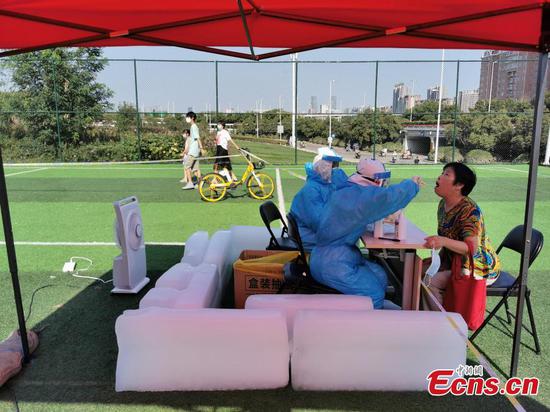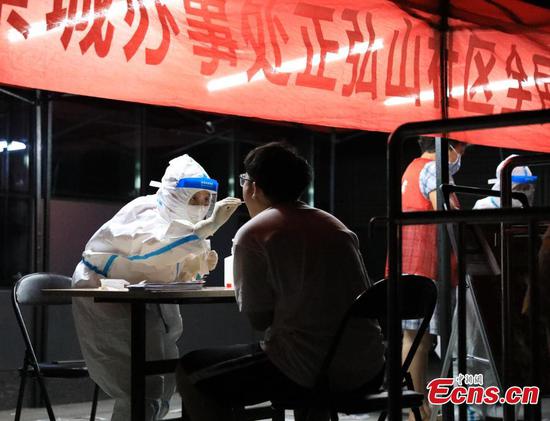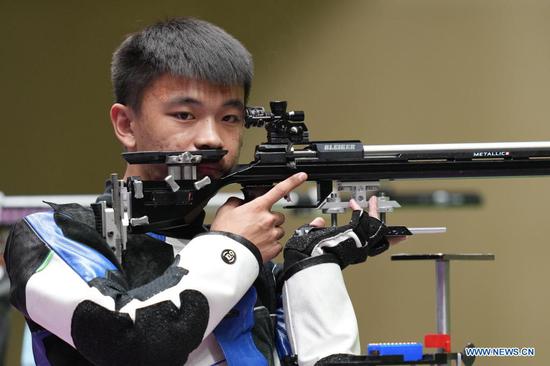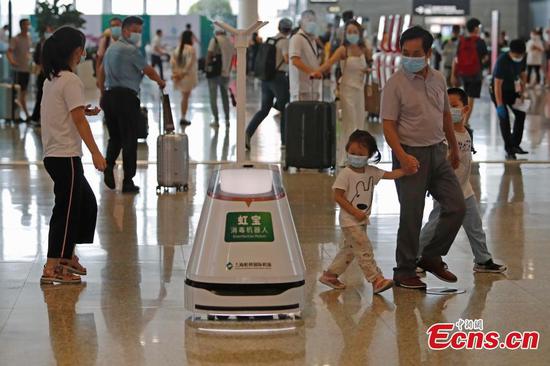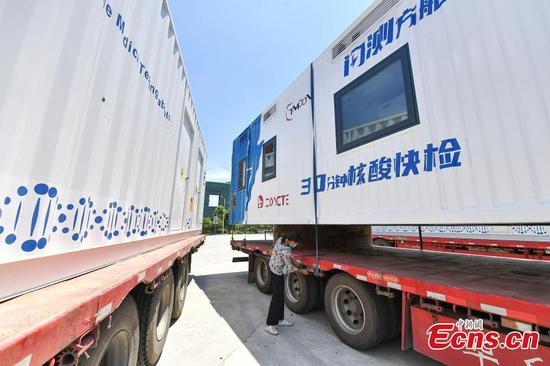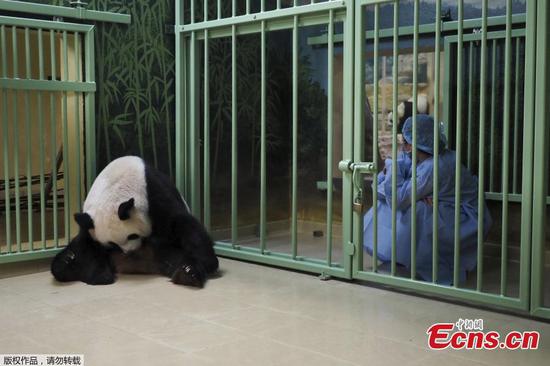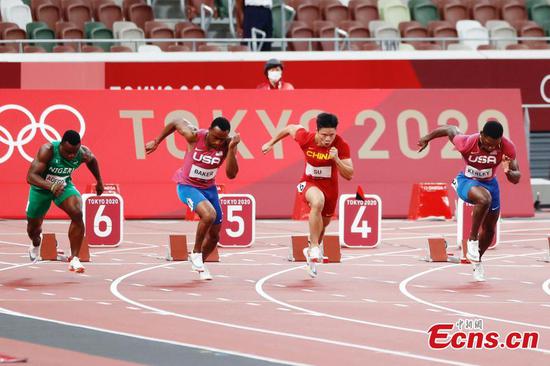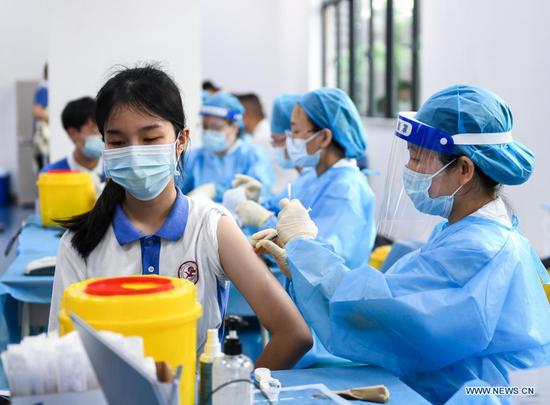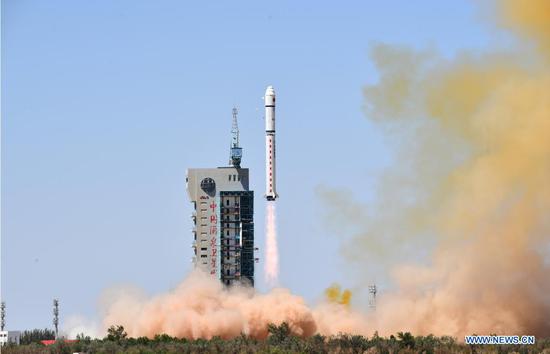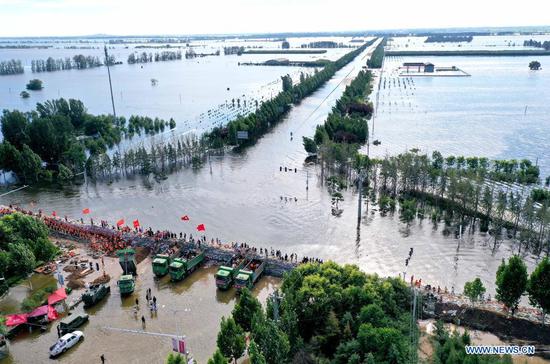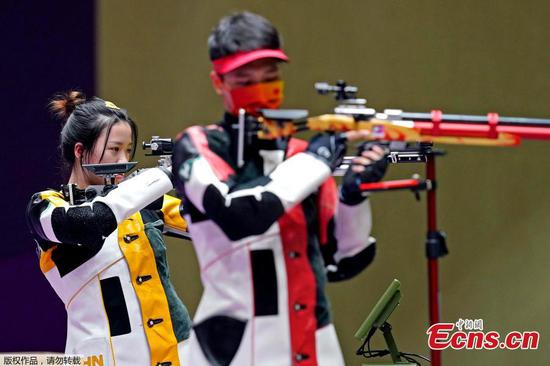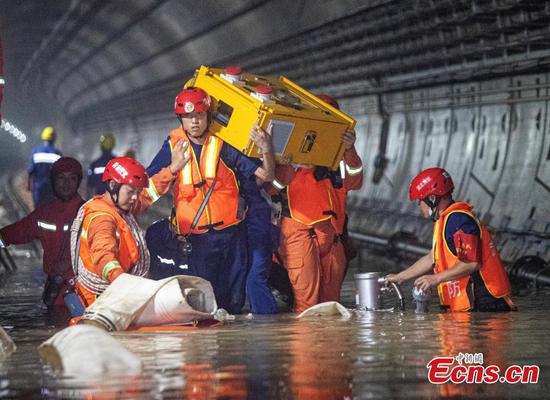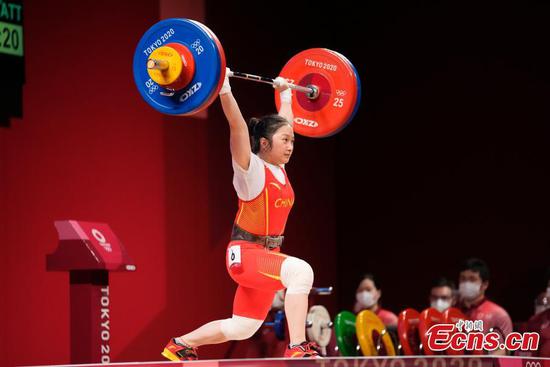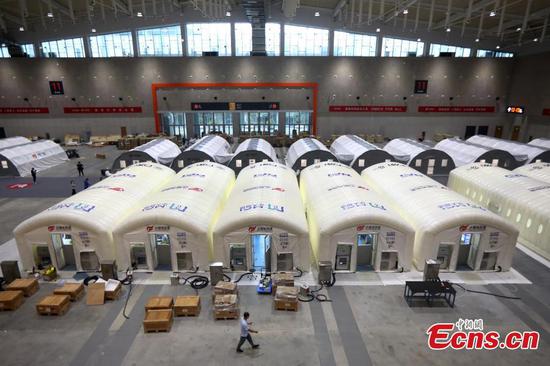China has imposed massive travel restrictions, including temporary closure of airports and travel alerts for citizens to other places across the country, to contain the spread of the Delta variant.
All 31 provincial-level regions in the Chinese mainland have urged citizens not to go to medium and high-risk areas for COVID-19 or leave the provinces where they live unless it is necessary.
Twenty-three railway stations have halted ticket sales for Beijing-bound passengers departing from these stations, said Cui Wei, an official with China Railway Beijing Group Co. Ltd. on Tuesday.
The Chinese capital has suspended 13 pairs of trains to Nanjing and Yangzhou in Jiangsu Province, Zhengzhou in Henan Province and Zhangjiajie in Hunan Province.
Travel agencies online and offline should keep track of epidemic information of destinations and not send groups into or receive groups from areas with medium and high COVID-19 risks, said a circular issued Tuesday by the Ministry of Culture and Tourism.
All flights at the airports in Nanjing, capital of Jiangsu, and Yangzhou have been suspended. Nine long-distance bus stations in Nanjing and public bus services in Yangzhou were also suspended.
The Chinese mainland on Monday reported 61 new locally transmitted COVID-19 cases, the National Health Commission said in its daily report on Tuesday. Forty-five cases were reported in Jiangsu, six in Hunan, three in Hubei, two each in Henan and Yunnan, and one each in Beijing, Shanghai, and Fujian, according to the commission.
As of Monday, 1,157 confirmed COVID-19 cases were in hospital in the mainland, including 698 imported ones, the commission said.
By 3 p.m. Tuesday, the country had four high-risk areas and 125 medium-risk areas for COVID-19.
East China's Jiangsu Province, where the recent airport-related cluster infections of Delta variant occurred, had 327 confirmed local cases receiving medical treatment as of Monday, local health authorities said.
EFFORTS TO CUT VIRUS TRANSMISSION
The Chinese capital of Beijing on July 27 saw the first resurgence of COVID-19 in months, prompting the municipal government to upgrade the epidemic prevention and control measures.
Pang Xinghuo, deputy director of the Beijing center for disease control and prevention, said at a press briefing on Monday that the epidemic prevention and control is again at a critical stage, as cluster infections have been reported in many areas in China.
Beijing on Sunday imposed strict entry and exit controls, asking all residents to minimize their travels and avoid gatherings.
Changping and Fangshan districts of the city, where four confirmed cases were reported, have carried out environment disinfection in residential communities.
The fifth case in this wave was reported on Monday in a residential community in Haidian District. The community and its surrounding areas, involving more than 10,000 people, have been put under closed-off management, and nucleic acid testing is being carried out.
The city has capped personnel flow under 60 percent in all parks, scenic spots, performance venues, and other sites that witness gatherings.










